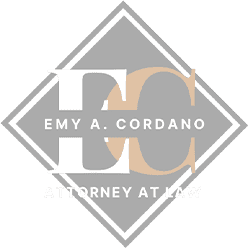While you have been married, you may have noticed that your husband or wife is a little over-optimistic when it comes to spending money. Using a credit card, or taking a loan, to help pay for a major purchase is an everyday occurrence for many people across the United States but, if you are considering divorce, did you know that Utah law means you can be held liable for their debt? It’s not unusual for people to mistakenly believe that, as their spouse’s debts were run-up in their own name, the other spouse has absolutely no responsibility. In Utah at least, this is entirely untrue, as, under state law, creditors can sue both spouses for any debts which were incurred during the marriage, with the sole exception of student debt.
In terms of your divorce, this means that you will “inherit” exactly one-half of all debts, even if you played no part in acquiring them. You may be able to offset this debt with assets, but you will still, ultimately, pay the price for your former spouse’s financial irresponsibility.
Under Utah Code Annotated Section 30-2-9. Family Expenses – Joint and Several Liability, the following terms apply to debts incurred during a marriage.
(1)The expenses of the family and the education of the children are chargeable upon the property of both spouses or of either of them separately, for which expenses they may be sued jointly or separately.
(2) For the expenses described in Subsection (1), where there is a written agreement signed by either spouse that allows for the recovery of agreed-upon amounts, a creditor or an assignee or successor in interest of the creditor is entitled to recover the contractually allowed amounts against both spouses, jointly and severally.
(3) Subsection (2) applies to all contracts and agreements under this section entered into by either spouse during the time the parties are married and living together.
(4) For the purposes of this section, family expenses are considered expenses incurred that benefit and promote the family unit. Items purchased pursuant to a written contract or agreement during the marriage that does not relate to family expenses are not covered by this section.
(5) The provisions of Subsections (2) and (3) do not create a right to attorney’s fees or collection fees as to the nonsigning spouse for the purchases of (a) food or clothing, or (b) home improvements or repairs over $5,000.
In simple terms, not knowing that your spouse incurred debts is no defense, and you will continue to be liable for 50%, as long as:
- The debts can be proven to have been incurred for the purpose of benefitting the family
- The debt arose when you and your spouse lived together as a married couple
However, there are some aspects of the wording of that law that could be used to prove you are not, after all, liable for half of the debt.

